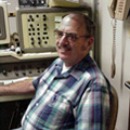Page 11 • (1,357 results in 0.049 seconds)
-
The PLU Department of Mathematics offers a broad choice of educational and career goals. We offer three degree options: a BA and BS in Mathematics and a BS in Mathematics Education.
mathematical modeling, as a tool to solve a variety of real-life interdisciplinary problems. This program builds upon the existing mathematics courses, incorporates interdisciplinary studies, and adds a permanent mathematical modeling course. Graduates will gain an understanding of applied mathematics and statistics, making them well equipped as they seek employment or pursue graduate programs. This degree pairs well with other Natural Sciences majors such as computer science, physics, and chemistry, as
-
regular curriculum. The title will be listed on the student term-based record as DS: followed by the specific title designated by the student. (1 to 4) CHEM 320 : Analytical Chemistry Chemical methods of quantitative analysis, including volumetric, gravimetric, and selected instrumental methods. Includes laboratory. Prerequisites: CHEM 116; MATH 140. (4) CHEM 331 : Organic Chemistry I An introduction to structure, reactivity, and general properties of organic molecules. Prerequisite: CHEM 116
-

TACOMA, WASH. (March 9, 2016)- Mosquitoes are pests to some, but for Rebekah Blakney ’12 they carry a wealth of information that can unlock solutions to global health issues. Now with the outbreak of the Zika virus, that’s as important as ever. Blakney isn’t at…
athlete who studied chemistry and biology at PLU. She eventually went on to earn a master’s degree at the University of Wisconsin. It was abroad that Blakney learned about the problems facing developing nations. She saw Panamanians with parasitic infections, primarily a result of poor water quality and sanitation. She saw how simple yet inaccessible preventive treatment was for the locals and decided she wanted to dedicate her life’s work to similar issues. Blakney’s recent field of study is new
-

Throw a dart at a world map, and it’s likely to hit a location where Pacific Lutheran University students or faculty members have conducted research.
probability theory at Wayne State University in Detroit. Grace Wang also holds a Ph.D. from Wayne State, in chemistry.
-

Landon Packard ’17 says it’s time to rescue the rescuers. The sociology major researched first responders’ emotional labor — the process of managing emotions to satisfy the requirements of a
hated the process of transcribing, he had a knack for drawing out his participants, making them feel comfortable, and eliciting heartfelt and sometimes painful stories.” Gregson stressed that Packard’s growth is indicative of the learning-by-doing model that’s key in student-faculty research opportunities at PLU. “I could tell stories all day long about challenges I’ve encountered while collecting data or the thrill of developing an analytical hunch, but until students experience it themselves, it
-

TACOMA, WASH. (August 24, 2015)- This week, PLU introduced “Open to Interpretation,” a new podcast devoted to exploring the meanings and implications of words commonly used in the news, on social media and on college campuses. Hosted by Associate Professor of Communication Amy Young, each…
relatively equally, to be heard and to hear from others. If you don’t have visual cues, you really don’t want a cast of thousands—it’s messy, it’s overly complex and it’s too hard to follow. And, I think you can be strategic with two to four people in terms of finding a few people who have a kind of beautiful, easy chemistry. Managing personalities is integral, I think, to this kind of podcast format. Read Previous Open to Interpretation: Advocacy (Episode 1) Read Next PLU Hosts Rwanda’s Best Young
-

A happy accident landed Sandra Estrada ’20 in her “Global Human Rights” course. It resulted in research on child mortality in sub-Saharan Africa, which she presented at an academic symposium at
, she struggled to find a landing spot. She quickly learned that her next choice, chemistry, wasn’t in the cards either. Then, with the help of Hames’ class, she discovered the depth and breadth of global studies. Public health quickly rose to the top of her interests within the field. She plans to continue exploring that topic on a global scale through study away. She’s considering enrolling in the semester Gateway program in Oaxaca, Mexico. “This definitely catapulted my interest into doing
-
to be accurately determined. After applying instrumental and analytical methods, an appropriate remedial method such as capping or dredging can be chosen to restore the sediment. Using concepts from analytical and instrumental chemistry allows for a suitable remedial method to be picked, creating a hopeful future for the restoration of the sediment. 3:25-3:40 - Break 3:40 pm - Synthesis of hydroxyguanidine models for conjugation to a drug-releasing polymer by a nitroso-Diels-Alder reaction Qiqige
-

Laurence Huestis, Ph.D. Professor Emeritus of Chemistry Website: https://www.plu.edu/chemistry/laurence-huestis/ Professional Education University of Minnesota, 1960-1961 Ph.D., University of California, Davis, 1960 B.A., University of California, Berkeley, 1956 Areas of Emphasis or Expertise Organic Synthesis Analytical (rare earth compounds) Mineralogy Responsibilities General Chemistry Organic Chemistry Analytical Chemistry Mineralogy
-
MS program in Environmental and Green Chemistry at George Washington University Posted by: alemanem / February 1, 2018 February 1, 2018 This unique 2-year program was created purposefully to combine both environmental and green chemistry in order to train students to both evaluate and proactively address sustainability challenges. The program includes unique coursework in green chemistry, such as Design of Safer Chemicals, Green Industrial Chemistry and Sustainable Energy, as well as a
Do you have any feedback for us? If so, feel free to use our Feedback Form.


